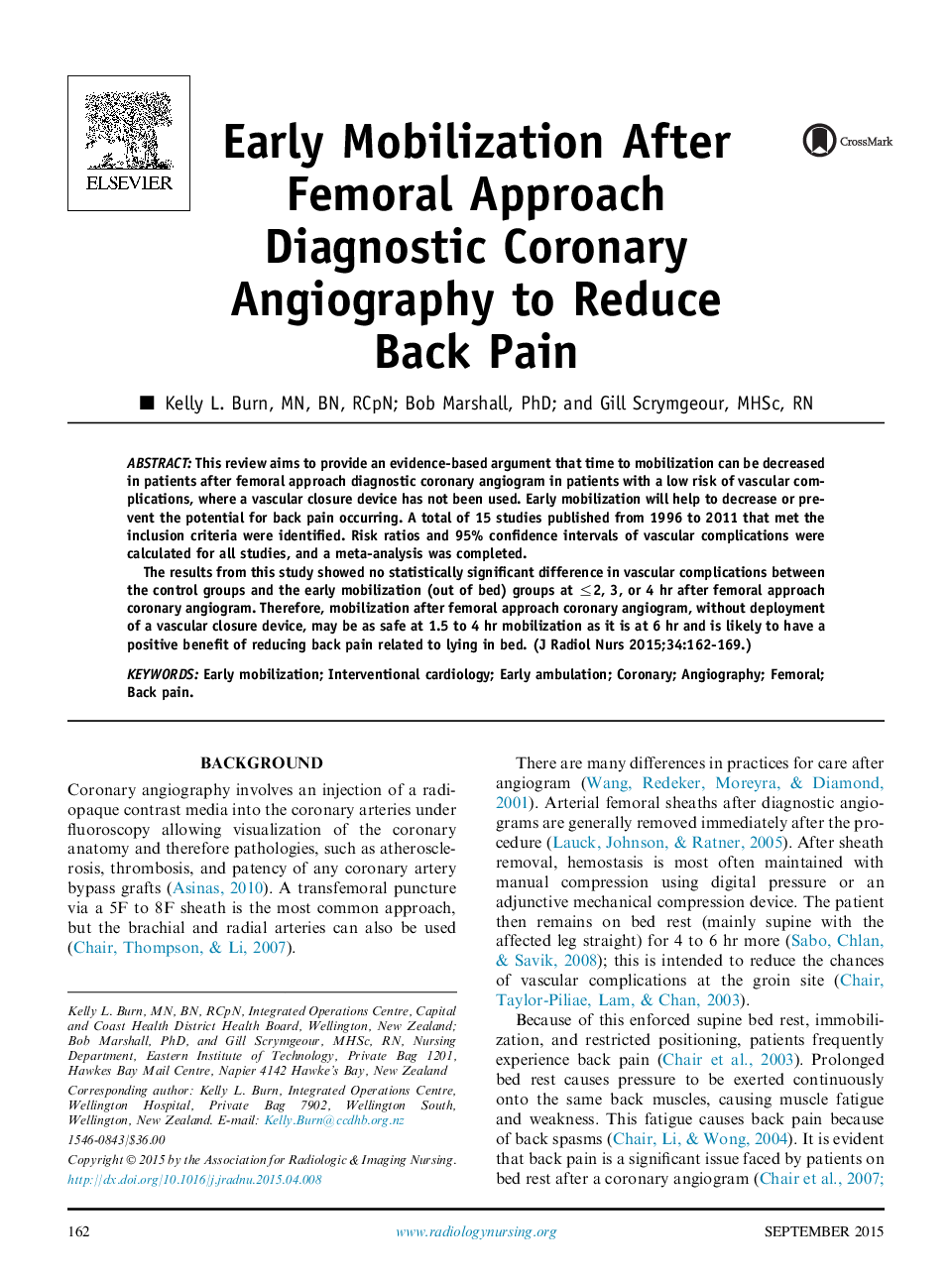| Article ID | Journal | Published Year | Pages | File Type |
|---|---|---|---|---|
| 2673128 | Journal of Radiology Nursing | 2015 | 8 Pages |
•Could recovery time be decreased in patients post femoral diagnostic angiogram?•Early mobilization will help to decrease or prevent the potential for back pain.•A total of 15 studies published from 1996 to 2011 were included, and a meta-analysis was completed.•Results showed no statistically significant difference in vascular complications.•Mobilization was at 2, 3, or 4 hours after femoral approach coronary angiogram.
This review aims to provide an evidence-based argument that time to mobilization can be decreased in patients after femoral approach diagnostic coronary angiogram in patients with a low risk of vascular complications, where a vascular closure device has not been used. Early mobilization will help to decrease or prevent the potential for back pain occurring. A total of 15 studies published from 1996 to 2011 that met the inclusion criteria were identified. Risk ratios and 95% confidence intervals of vascular complications were calculated for all studies, and a meta-analysis was completed.The results from this study showed no statistically significant difference in vascular complications between the control groups and the early mobilization (out of bed) groups at ≤2, 3, or 4 hr after femoral approach coronary angiogram. Therefore, mobilization after femoral approach coronary angiogram, without deployment of a vascular closure device, may be as safe at 1.5 to 4 hr mobilization as it is at 6 hr and is likely to have a positive benefit of reducing back pain related to lying in bed.
